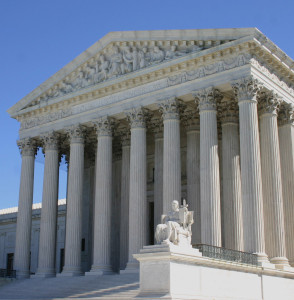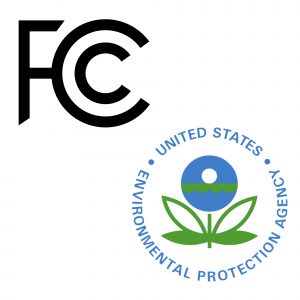The State of the Energy Marketplace in the United States
Colleague Robert A. James has authored the United State chapter of Global Legal Group’s Energy 2020 in which he provides an overview of the current U.S. energy marketplace.
In the chapter, Rob discusses the progress as well as the clashes on policies and projects in a wide variety of arenas, including:
- Incentives and challenges for renewables, including U.S. offshore wind and expanded power storage;
- Divergent views on natural gas and battles over new oil and gas pipelines;
- The vehicle efficiency duel between California and the federal government;
- Endangered Species Act, environmental regulatory and climate change litigation developments; and
- Wildfire liability, cybersecurity and blockchain issues for electric utilities and the national grid.
To access the full PDF, click here.
(Reproduced with permission from Global Legal Group, Ltd.)
Court Holds Salary Costs Associated with Lobbying Activities Are “Expressly Unallowable”
A recent decision by the Court of Appeals for the Federal Circuit could have lasting ramifications for government contractors. In Raytheon Co. v. Sec. of Def., the court held that salary costs associated with lobbying activities are expressly unallowable, and therefore subject to penalties. In “Federal Circuit Decision Addressing Salary Costs Associated with Lobbying Activities Has Broad Implications,” colleague Aaron S. Ralph examines the October 18 decision more closely.
Rent Caps, Carveouts and “Just Cause” Evictions: Breaking Down the Tenant Protection Act of 2019
 Gov. Gavin Newsom recently signed the Tenant Protection Act of 2019, legislation that caps annual rent increases in California for the next decade. Prior to the Tenant Protection Act, the only state-level protections against rent increases were price-gouging limits that apply only after natural disasters. (See Cal. Penal Code Section 396.) The law also extends “just cause” eviction protections to tenants statewide.
Gov. Gavin Newsom recently signed the Tenant Protection Act of 2019, legislation that caps annual rent increases in California for the next decade. Prior to the Tenant Protection Act, the only state-level protections against rent increases were price-gouging limits that apply only after natural disasters. (See Cal. Penal Code Section 396.) The law also extends “just cause” eviction protections to tenants statewide.
Two Decisions by Federal Appeals Courts Uphold Agency Deference
The U.S. Court of Appeals Upholds Denial of Alternative Fuel Tax Credits and the Imposition of Large Penalties
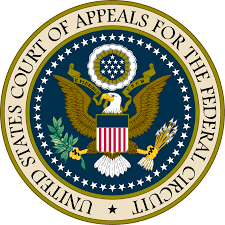 The federal government has long encouraged the development and use of alternative fuels by enacting legislation that promises tax credits for such use. However, special care must be taken to ensure that all of the requirements of the law are observed. This has been made clear by recent rulings of the U.S. Court of Claims and the U.S. Court of Appeals for the Federal Circuit.
The federal government has long encouraged the development and use of alternative fuels by enacting legislation that promises tax credits for such use. However, special care must be taken to ensure that all of the requirements of the law are observed. This has been made clear by recent rulings of the U.S. Court of Claims and the U.S. Court of Appeals for the Federal Circuit.
Sustainability Puts Down Roots in Real Estate
 Sustainability has evolved from a passing trend or niche preference into an undeniable, growing driver of the real estate market. This is particularly true as millennials comprise an increasing proportion of the workforce, home-buying population, and individuals influencing the future of real estate development in the United States.
Sustainability has evolved from a passing trend or niche preference into an undeniable, growing driver of the real estate market. This is particularly true as millennials comprise an increasing proportion of the workforce, home-buying population, and individuals influencing the future of real estate development in the United States.
New Proposed Regulations Expand CFIUS Jurisdiction Regarding Real Estate
On September 17, 2019, the U.S. Department of Treasury issued two new proposed rules for the Committee on Foreign Investment in the United States (CFIUS) implementing the Foreign Investment Risk Review Modernization Act (FIRRMA). Of particular interest to readers of this blog was the second of the proposed rules, which addressed FIRRMA’s real estate-related expansion of CFIUS jurisdiction.
Over on Global Trade & Sanctions Law, colleagues Christopher R. Wall, Nancy A. Fischer, Aaron R. Hutman, Matthew R. Rabinowitz, Jorge Vera and Roya Motazedi examine the new regulations and how FIRRMA expands CFIUS’ jurisdiction to include certain types of real estate transactions.
EPA and the Corps of Engineers Repeal the 2015 “Waters of the United States” Rule
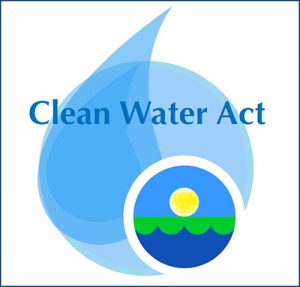 The pre-publication version of the final rule to be promulgated by EPA and the U.S. Army Corps of Engineers (ACOE) to repeal the 2015 redefinition of the Clean Water Act’s term “Waters of the United States” which is the linchpin of these agencies’ regulatory power under the CWA, was made available on September 12, 2019. The rule should be published in the Federal Register in the next few weeks, and it will be effective 60 days thereafter. Many challenges are expected to be filed in the federal courts.
The pre-publication version of the final rule to be promulgated by EPA and the U.S. Army Corps of Engineers (ACOE) to repeal the 2015 redefinition of the Clean Water Act’s term “Waters of the United States” which is the linchpin of these agencies’ regulatory power under the CWA, was made available on September 12, 2019. The rule should be published in the Federal Register in the next few weeks, and it will be effective 60 days thereafter. Many challenges are expected to be filed in the federal courts.
Clean Water Act Cases: Of Irrigation and Navigability
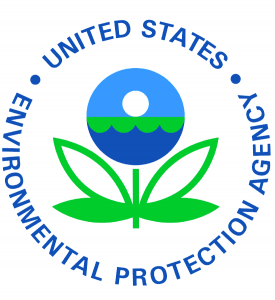 The federal courts have recently decided two significant Clean Water Act (CWA) cases: State of Georgia, et al. v. Wheeler, where the US District Court for the Southern District of Georgia held that the 2015 rulemaking proceeding of EPA and the U.S. Army Corps of Engineers redefining the term “Waters of the United States” in the CWA violated the Act as well as the Administrative Procedure Act; and the Ninth Circuit’s decision in Pacific Coast Federation of Fishermen’s Associations, et al. v. Glaser, where the appeals court ruled that the lower court erroneously interpreted a CWA NPDES permitting exception involving agricultural return flows.
The federal courts have recently decided two significant Clean Water Act (CWA) cases: State of Georgia, et al. v. Wheeler, where the US District Court for the Southern District of Georgia held that the 2015 rulemaking proceeding of EPA and the U.S. Army Corps of Engineers redefining the term “Waters of the United States” in the CWA violated the Act as well as the Administrative Procedure Act; and the Ninth Circuit’s decision in Pacific Coast Federation of Fishermen’s Associations, et al. v. Glaser, where the appeals court ruled that the lower court erroneously interpreted a CWA NPDES permitting exception involving agricultural return flows.





